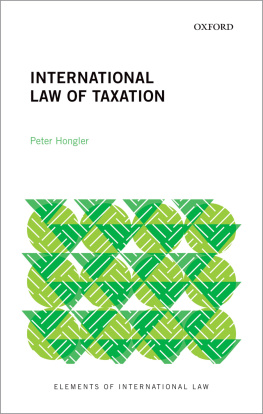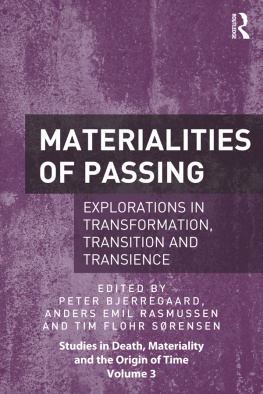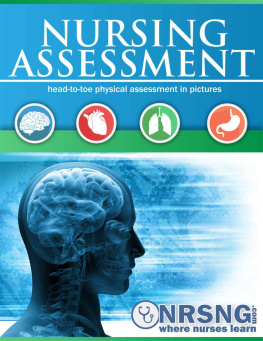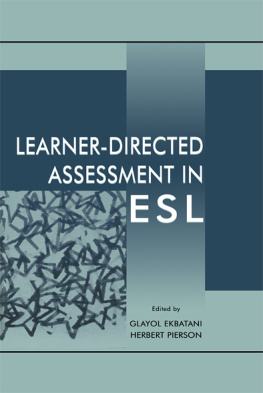First published in 2007 by Law Matters Ltd.
All rights reserved. No part of this publication may be reproduced, stored in a retrieval system, or transmitted in any form or by any means, electronic, mechanical, photocopying, recording, or otherwise, without prior permission in writing from Law Matters.
2007 Peter Cox
British Library Cataloguing in Publication Data
A CIP record for this book is available from the British Library.
ISBN: 978 1 84641 059 8
The right of Peter Cox to be identified as the Author of this Work has been asserted by him in accordance with the Copyright, Designs and Patents Act 1988.
Cover design by Code 5 Design Associates Ltd
Project management by Deer Park Productions
Typeset by Pantek Arts Ltd, Maidstone, Kent
Printed and bound in Great Britain by Cromwell Press Ltd, Trowbridge, Wiltshire
Law Matters Ltd
33 Southernhay East
Exeter EX1 1NX
Tel: 01392 215577
info@lawmatterspublishing.co.uk
www.lawmatterspublishing.co.uk
Acknowledgements
Peter Cox would like to thank his wife Janice for all the support, help and encouragement she gave him during his police career and while writing this book.
Every effort has been made to trace the copyright holders and to obtain their permission for the use of copyright material. The publisher and author will gladly receive information enabling them to rectify any error or omission in subsequent editions.
The author and publisher would like to thank the following for permission to reproduce copyright material: The Integrated Competency Behavioural Framework Version 9.0 (May 2007) reproduced in part in Appendix A of this book with the kind permission of Skills for Justice.
Chapter 1
Introduction
Why this book?
From 2002 Police Forces throughout England and Wales were able to recruit Police Community Support Officers. Their role was created to provide a high visibility uniformed presence within communities providing the reassurance communities said they wanted. Police Community Support Officers are within the community as a point of contact for members of the public and to work with the wider police service in preventing and detecting nuisance and low-level crime. In short their role is to focus on community safety issues thereby increasing the quality of life.
The role of Police Community Support Officer is a demanding one and some larger Police Forces have split the role into three specialist areas: -
- Transport
- Community
- Security
Whether general in nature or specialised, Police Community Support Officers wear a uniform and are required to work shifts, including evenings, weekends and bank holidays, during which time incidents may well involve conflict, and these can be challenging. It should also be considered that Police Community Support Officers are very often, after their initial training, required to patrol alone. All these issues should be considered in full before commencing the application process to become a Police Community Support Officer. The application process is demanding and time-consuming both for the candidate making the application and the police service who are to receive and process it.
Initially each individual police service designed and developed their own recruiting process for Police Community Support Officers however Central government were very keen to ensure criticisms levelled at the recruitment of Police Constables, prior to a national recruit process being introduced for them, were not repeated for the recruitment of Police Community Support Officers. Due to this a single process for the recruiting of Police Community Support Officers was introduced for individual police services to adopt from April 2006.
Advice and guidance available to people who are considering undergoing this assessment process are limited and vary in quality. This book, therefore, includes both an explanation of the national Police Community Support Officers Assessment Process and exercises that have been designed to help you acquire or enhance the skills and abilities you need to become a Police Community Support Officer.
You should work through the contents of this book in the order they are presented. This will assist you in understanding:
- the reasons why a national Police Community Support Officer Recruit Assessment Process has been established;
- the National Core Competencies;
- how to complete the written application;
- what is included in the assessment;
- the requirements for each section of the assessment;
- the skills and abilities required of a Police Community Support Officer (these are tested during the assessment process); and
- the feedback you receive following an assessment.
You should create a self-study plan when using this book. How you devise this and the detail it contains will be dictated by the time you have available prior to attending for your assessment however tasks for you to complete within this book will assist you to do this.
When you are preparing for the assessment process, you must obtain certain information and guidance. This will help you when you come to consider and develop your skills and abilities. It is important that you obtain information and guidance from more than one person: detailed feedback from a number of different sources will enable you to assess yourself accurately and will help you to develop the appropriate skills. Try, therefore, to get help from at least three different people, preferably from different walks of life (for example, from your family, work and social environments). You should also read and make sure you understand the information your local service sends you prior to attending for assessment.
A number of issues are mentioned on more than one occasion in this book. This will help you to understand the requirements for that particular part of the assessment process and will also reinforce the key learning points.
Background to the national Police Community Support Officers Recruit Assessment Process
Before the national Police Community Support Officers Recruit Assessment Process was established, each police force in England and Wales was responsible for its own recruiting methods. This led to variations in the skills and abilities that were being assessed, and to what standards. In addition, the actual assessment of individual candidates varied a great deal. It was for these reasons, and to prevent criticisms previously made of recruiting into the police service, that a nationally recognised, robust and standardised procedure was proposed. The result was the National Police Community Support Officers Recruit Assessment Process, which was designed and implemented by the national police training organisation, Centrex (now superseded by the National Policing Improvement Agency).
As part of this process, Assessment Centres were created. Even though the term Assessment Centre suggests otherwise, an Assessment Centre is really a process rather than a building or a place. For a recruiting process to be considered an Assessment Centre, certain key elements must be present. These are:
- The candidates skills and abilities are tested a number of different times.










